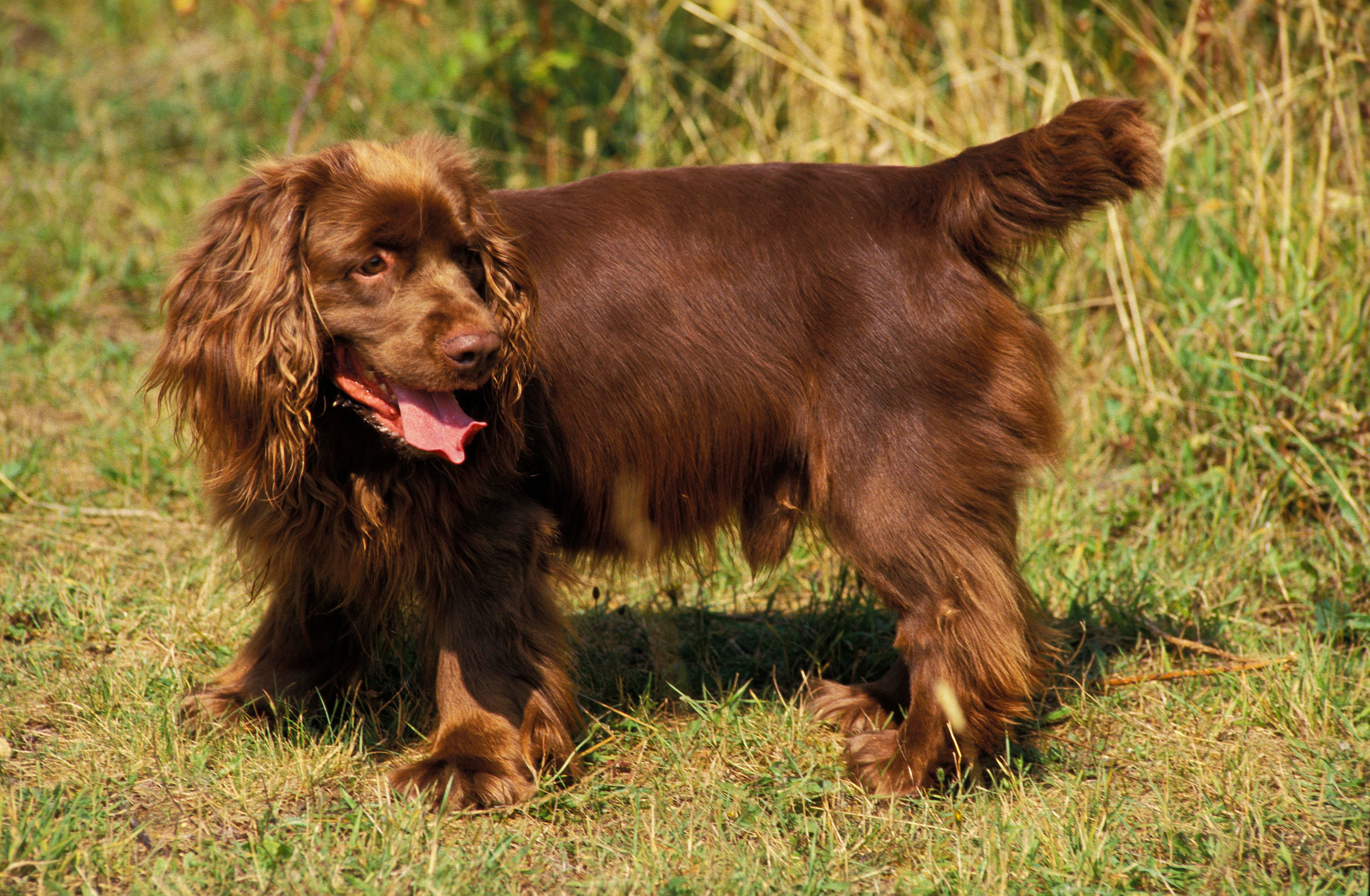Sussex Spaniel
The Sussex Spaniel is a muscular dog with short legs and a wide body. They are powerful dogs with a gait that emphasizes strength over speed. A flat or slightly wavy coat in a striking golden liver has feathering between the toes, sometimes covering the toenails. While their expressions can be serious, their tails tell the true story—these are fun-loving and cheerful dogs.
Breed characteristics carousel
Learn More
Need to Know
- Dog suitable for owners with some experience
- Basic training required
- Generally healthy breed
- Enjoys active walks
- Large dog
- Some drool
- Requires frequent grooming
- Quiet dog
- Welcomes everyone happily
- Generally friendly with other dogs
- Gets along with other pets with training
- May need additional supervision to live with children
- Needs a large yard, preferably in suburban or rural areas
- Can be left alone occasionally with training
- AKC Registered Breed

Personality
Laid-back and adaptable, the Sussex Spaniel is like the phrase “no worries” in dog form. They make happy and loyal companions and have a calm and steady personality.
Hailing from Sussex, England, Sussex Spaniel dogs were first mentioned in a sporting publication in the early 1820s. They would use their exceptional scent skills to suss out small animals on large English estates. Despite being one of the first 10 AKC-recognized breeds, they have never been particularly popular in America.
If you enjoy long walks and robust training sessions, then the Sussex Spaniel dog breed might be a good fit. Owners will need a good raincoat and a good sense of humor about the weather—these dogs love to muck in muddy and wet weather and won’t care a bit if their owner is uncomfortable. They do best in rural or suburban areas, either in child-free homes or those with older children.
Sussex Spaniel puppies should be exercised carefully as their growing joints can be damaged easily. Once mature, they will need a good mix of physical and mental activity. Scentwork is their preferred work and they love swimming.
The Sussex Spaniel’s short legs mean lots of stairs aren’t the best fit. They thrive when they have access to a fenced-in yard for off-leash running and sniffing. Inside, owners will need a space for a perpetually muddy and wet dog to live comfortably.
Brushing the Sussex Spaniel a few times a week will keep them free of tangles. Their ears should be kept clean and inspected regularly, as should the hair around the paw pads.
Slow and steady wins the Sussex Spaniel race. They are less energetic than other Spaniel breeds but still need a decent amount of exercise, especially mentally. Training can help, using positive methods. Toys, food, and scentwork will motivate the Sussex Spaniel dog. Retrieving, recall, and leash walking are all good skills for them to learn, as is “leave it” or “drop it”—they are known to steal items!
If you live an active lifestyle, the Sussex Spaniel might slip right into your family life. They make good companions so long as you don’t mind their instincts to collect and hold items. They do best with older children or child-free homes where small items of value won’t be left lying around.
The cost of a Sussex Spaniel from a breeder is significantly more than the cost of adopting one from a local shelter or rescue. The adoption fee usually covers additional items such as spaying or neutering, vaccines, and microchipping.

Learn more about feeding and caring for your Sussex Spaniel on Purina.
Did You Know?
- The dog breed is so rare that there are more Giant Pandas registered than Sussex Spaniel puppies.
